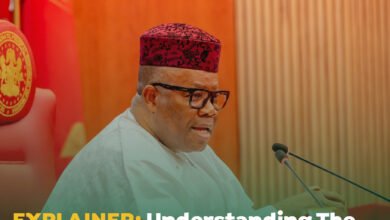
The power dynamics within Edo State, Nigeria, have climbed to a crescendo by the escalating feud between Governor Godwin Obaseki and his deputy, Philip Shaibu. As tensions mount and political maneuvering intensifies, speculation regarding the possibility of Governor Obaseki impeaching his deputy has become a focal point of public discourse.
Impeaching a deputy governor in Nigeria is not a decision to be taken lightly, as it involves a multifaceted process guided by legal, constitutional, and political considerations. The authority to initiate impeachment proceedings rests squarely with the state House of Assembly, which must adhere to the constitutional framework governing such actions. Grounds for impeachment, including gross misconduct, constitutional violations, or incapacity, must be meticulously established before any formal action can be taken against the deputy governor.
Governor Obaseki holds the power to set the wheels of impeachment in motion by presenting his case before the state House of Assembly and calling for a thorough investigation into the allegations against Deputy Shuaibu. Should the Assembly find the accusations to be substantiated, the impeachment process would proceed, involving a series of hearings, investigations, and ultimately, a vote on the impeachment resolution. Success in garnering a majority vote would result in the removal of the deputy governor from office, fundamentally altering the state’s political landscape.
Alternatively, Governor Obaseki may seek to sway members of the state House of Assembly to independently initiate impeachment proceedings against Deputy Shuaibu. By leveraging political alliances and strategic persuasion, Obaseki could effectively catalyze the impeachment process without directly instigating it himself. But beyond the glaring need to adhere to the constitutional and legal framework, a prominent question is that of the depth and strength of Obaseki’s influence, beginning with the recognition of how many PDP seats are there in the Edo State assembly.
Philip Shuaibu is, of course, not a lightweight neophyte that can easily be tossed aside in the grand politicking of Edo State. He has to himself a vast network of alliances and control that would, beyond the legal avenue of pleading his case, afford him the breadth of advantage and assert him as a candidate to beat in the general elections in November. Yet, one must not underestimate Obaseki who in time past has contended the combined forces of state machinery and party institutions, and came out tops.
All of this makes for a grand, nerve-racking political drama, but the ultimate question lies with the viability of each possible outcomes. Impeachment is not easy and may end in court, and what lesson is there to be drawn from the history of impeachments in Nigeria? As the plot intensifies, one might wonder where the place of state governance is in all of this, a task originally the combined and sworn responsibility of Obaseki and his deputy Shuaibu, especially with the tightening economic conditions in the country.





